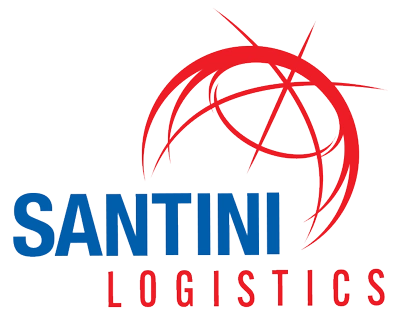
Flexible and efficient
Over the Road Hauling
From efficient long-distance transportation to flexible scheduling options, we’ll cover it all.
This page will discuss the benefits, requirements, common routes, and regulations for this type of transportation in New Jersey and New York.
Continue to learn more about the types of freight typically hauled, the necessary certifications, and frequently asked questions about over-the-road hauling in NJ & NY.
More on Over The Road
Key Takeaways
- Over-the-road hauling is a method of transportation commonly used for long-distance freight in NJ & NY.
- Key benefits include efficiency for long-distance transportation, cost-effectiveness for large shipments, and flexible scheduling options.
- Requirements for over-the-road hauling include a CDL, DOT registration, and vehicle maintenance/inspection. Common routes in NJ & NY include I-95, I-80, NJTP, and GSP.
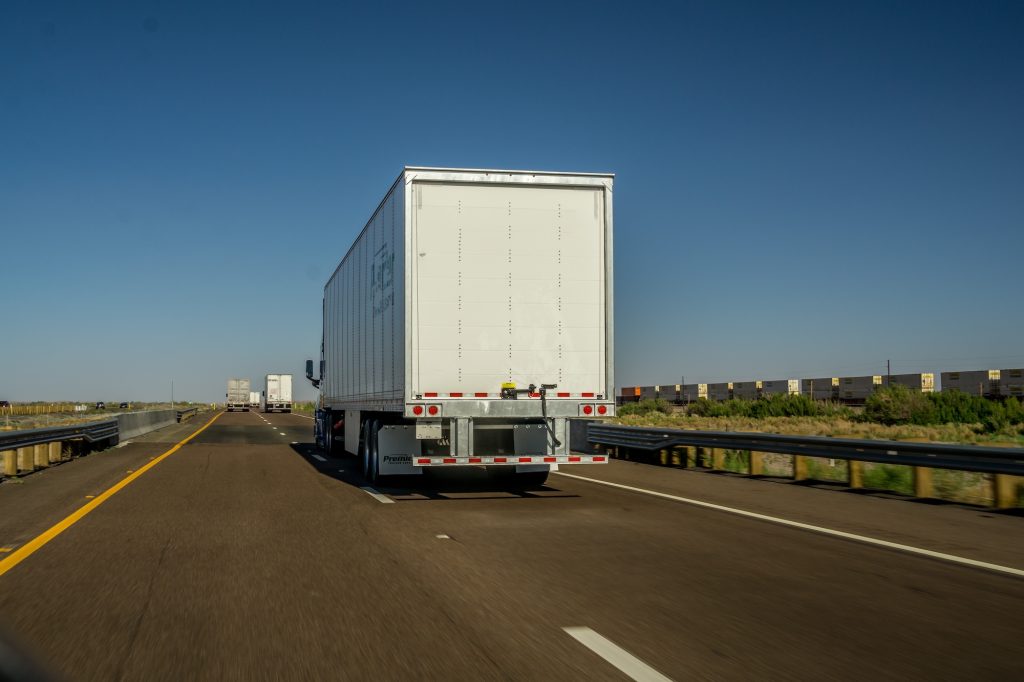
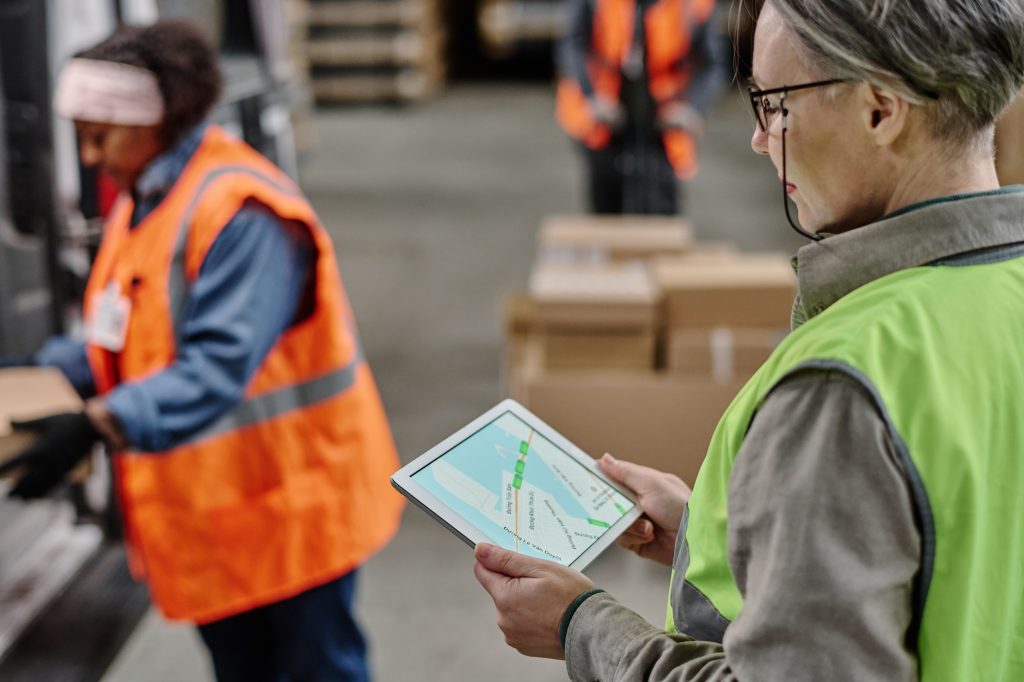
Delivery
What Is Over-the-Road Hauling?
Over-the-road hauling, also known as over-the-road trucking, is a type of freight transportation that involves moving goods over long distances, often crossing state lines and requiring specialized logistics and planning, a service provided by Santini Logistics.
Within the realm of over-the-road hauling, a variety of goods can be transported, ranging from everyday consumer products like electronics and clothing to bulk materials such as construction or inventory materials. The logistical challenges in this type of transportation include factors like route optimization, driver scheduling, fuel management, and compliance with regulations governing long-distance transport.
Services Included
What Are the Benefits of Over-the-Road Hauling?
The benefits of over-the-road hauling include efficient transportation for long distances, cost-effectiveness for large shipments, and flexible scheduling options, making it a preferred method for many logistics services.
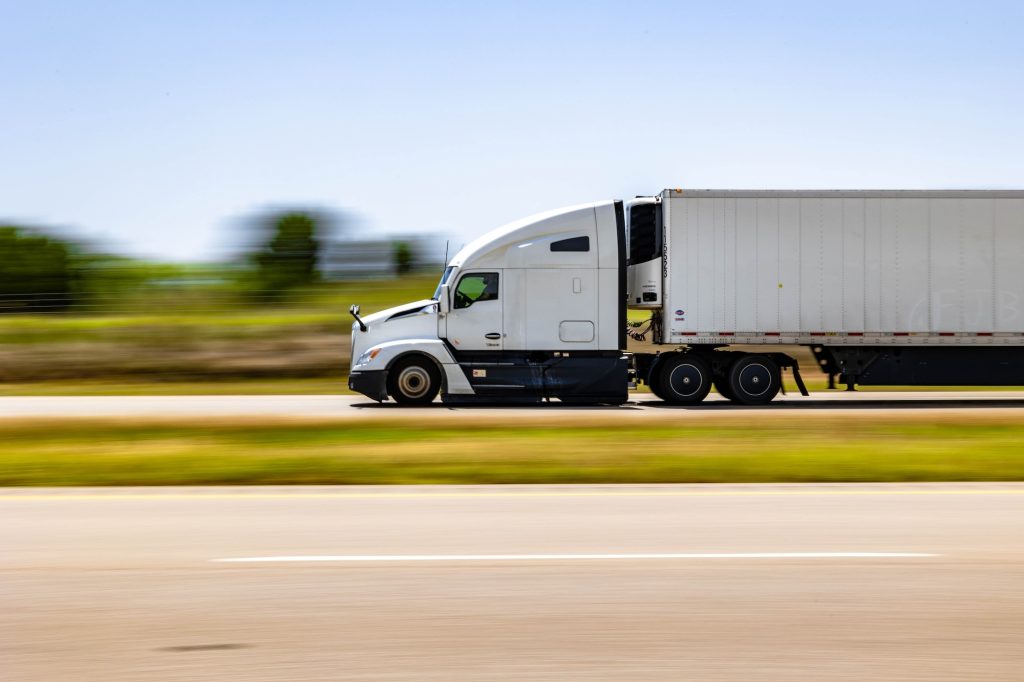
Efficient for Long-Distance Transportation
Over-the-road hauling is particularly efficient for long-distance transportation, allowing goods to be moved across state lines swiftly and reliably.
One of the key advantages of over-the-road hauling for long-distance transportation is the ability to cover vast distances in a relatively short amount of time. This method is especially suitable for moving goods over hundreds or even thousands of miles without the need for complex logistical maneuvers or transshipment. The speed of over-the-road hauling means that items can be transported quickly from one state to another, ensuring timely deliveries and streamlined supply chains.
Cost-Effective for Large Shipments
One of the key advantages of over-the-road hauling is its cost-effectiveness for large shipments, making it an economical choice for businesses.
When businesses need to transport large quantities of goods over long distances, over-the-road hauling becomes a practical solution due to its lower cost per mile compared to other transportation methods such as air or rail.
For instance, a company specializing in furniture manufacturing can benefit significantly from over-the-road hauling when shipping bulk orders to retailers across states, as it allows them to keep transportation expenses in check while ensuring timely deliveries.
The flexibility of over-the-road hauling enables businesses to easily adjust their shipping schedules and routes based on evolving logistical needs, providing a versatile solution for dynamic supply chain requirements.
Flexible Scheduling Options
Over-the-road hauling provides flexible scheduling options, accommodating various delivery times and transportation needs.
With over-the-road hauling, the extended hours of operation and adaptable routes make it easier to meet specific delivery requirements. Whether it’s a just-in-time delivery or a cross-state shipment, the flexibility of this transportation mode ensures that goods arrive at their destination on time.
The ability to adjust schedules based on customer demands and unexpected road conditions is a key advantage of over-the-road hauling. This adaptability is essential for businesses looking for efficient and reliable transportation solutions.
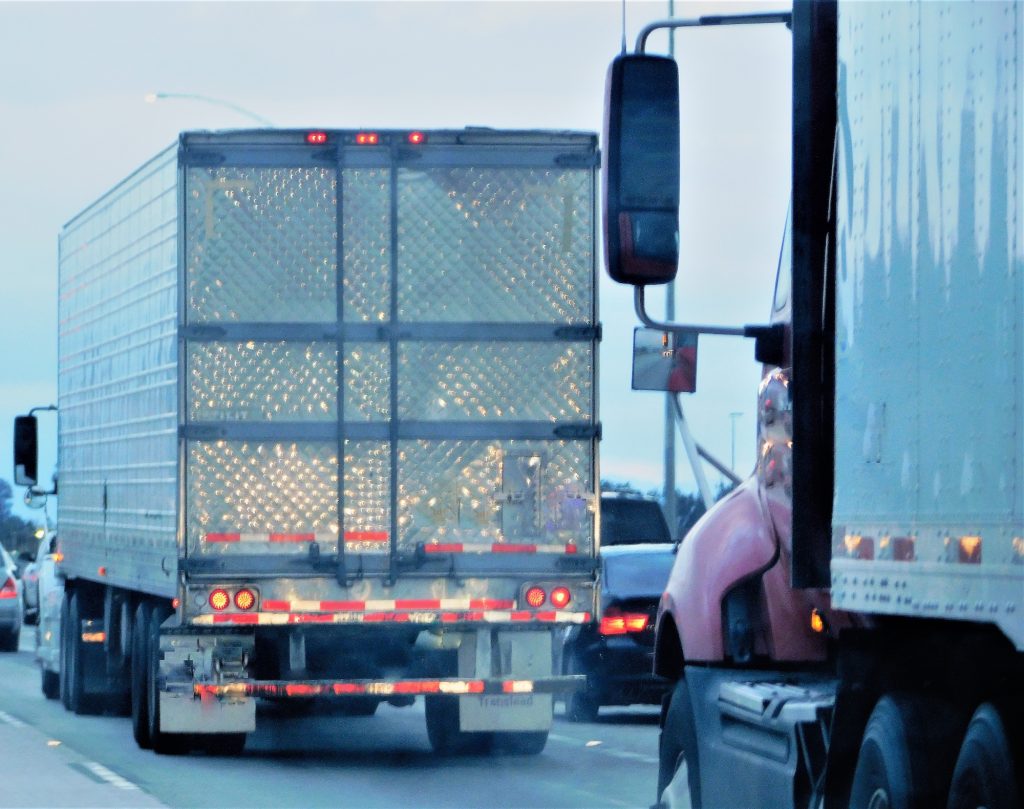
Types of Freight
What Types of Freight Are Typically Hauled Over the Road?
Various types of freight are typically hauled over the road, including consumer goods, industrial equipment, and agricultural products, each requiring specific handling and logistics.
Consumer goods encompass a broad range of products, such as electronics, clothing, and household items, that are transported across states to meet the demands of retail stores and consumers.
On the other hand, industrial equipment, including machinery, construction materials, and parts, often require specialized trailers or handling due to their size and weight.
Agricultural products, like grains, fruits, and livestock, need careful temperature control and storage to maintain their quality during transit.
Understanding the unique requirements of each type of cargo is essential for successful freight transportation.
What Are the Requirements for Over-the-Road Hauling?
The requirements for over-the-road hauling include obtaining a Commercial Driver’s License (CDL), registering with the Department of Transportation (DOT), and ensuring vehicle maintenance and inspection standards are met.

Commercial Driver’s License (CDL)
A Commercial Driver’s License (CDL) is mandatory for drivers involved in over-the-road hauling, ensuring they are qualified to operate large freight vehicles.
Obtaining a CDL involves meeting certain eligibility criteria specified by the Department of Transportation. Prospective drivers must pass a written knowledge test covering topics like traffic laws, safe driving techniques, and the proper procedures for handling various road conditions. Plus this, individuals seeking a CDL must undergo hands-on training to demonstrate their ability to operate a commercial vehicle safely and efficiently.
Department of Transportation (DOT) Registration
DOT registration is a crucial requirement for over-the-road hauling, as it ensures compliance with federal transportation regulations and safety standards.
When a commercial vehicle is engaged in interstate commerce, whether transporting goods or passengers, it falls under the jurisdiction of the Department of Transportation (DOT). The process of DOT registration involves submitting important documentation, such as proof of insurance, vehicle weight ratings, and driver qualifications. This registration not only validates the legitimacy of operations but also underscores a commitment to upholding safety protocols. By adhering to DOT regulations, companies can mitigate risks associated with accidents, fines, and legal liabilities, ultimately safeguarding their reputation and maintaining overall efficiency.
Vehicle Maintenance and Inspection
Regular vehicle maintenance and inspection are essential requirements for over-the-road hauling to ensure safety and operational efficiency.
Proper upkeep of vehicles in the transportation industry is not just a matter of compliance but a crucial aspect that directly impacts the smooth functioning of operations. A well-maintained fleet not only reduces the risk of breakdowns on the road but also enhances fuel efficiency and prolongs the lifespan of the vehicles.
Through routine inspections and servicing, potential issues can be detected and resolved before they escalate into major problems, preventing costly repairs and unforeseen downtime. Adhering to strict maintenance schedules not only safeguards the driver and cargo but also contributes to overall road safety and regulatory compliance.

What Are the Common Routes for Over-the-Road Hauling in NJ & NY?
Common routes for over-the-road hauling in New Jersey (NJ) and New York (NY) include major highways and interstates such as Interstate 95 (I-95), Interstate 80 (I-80), the New Jersey Turnpike (NJTP), and the Garden State Parkway (GSP).
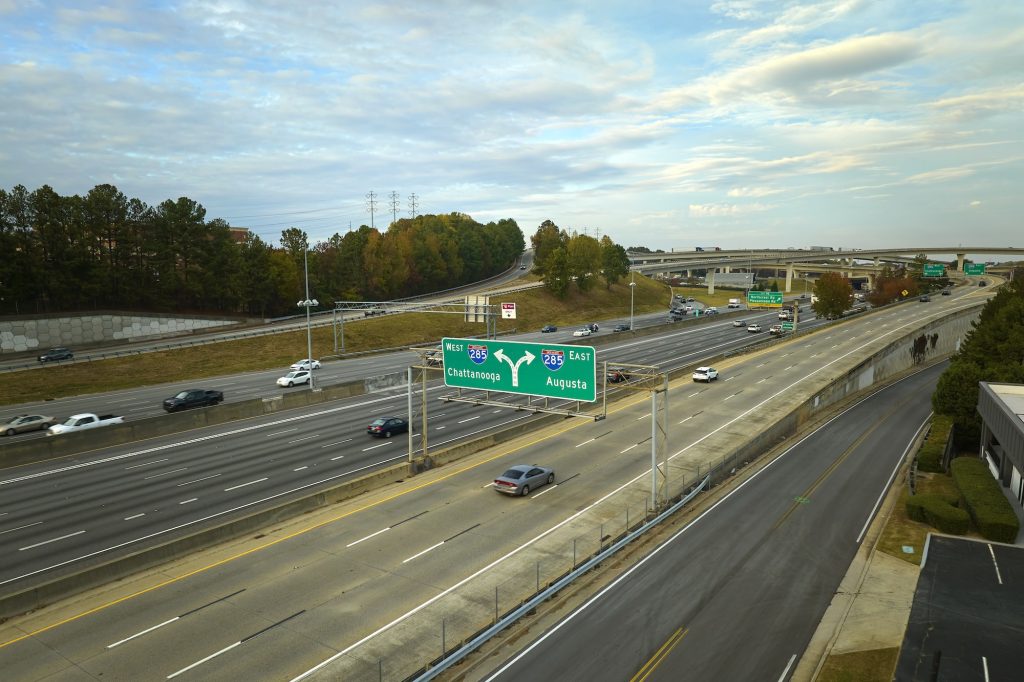
Interstate 95 (I-95)
Interstate 95 (I-95) is a major north-south route used for over-the-road hauling, connecting key cities and facilitating efficient long-distance transportation.
Due to its strategic placement along the East Coast of the United States, I-95 serves as a vital artery for transporting goods from the northern states down to the southern regions and vice versa. The highway links major metropolitan areas such as Boston, New York City, Philadelphia, Washington D.C., and Miami, making it a crucial lifeline for commercial shipping and supply chain operations. Trucking companies heavily rely on I-95 for expedited deliveries, as it offers direct access to bustling urban centers and industrial hubs, optimizing transit times and reducing logistical costs.
Interstate 80 (I-80)
Interstate 80 (I-80) is another key route for over-the-road hauling, offering an east-west corridor that spans from New York City to the western United States.
I-80 plays a crucial role in the transportation industry, facilitating the movement of goods and services across vast distances. This major highway serves as a primary artery connecting the busy urban centers of the East Coast with the expansive landscapes of the West Coast.
- Truckers and logistics companies heavily rely on I-80 for efficient freight transportation, leveraging its strategic location and well-maintained infrastructure for timely deliveries.
- Its connectivity to major cities like Chicago, Salt Lake City, and San Francisco further underscores its significance in streamlining supply chains and bolstering interstate commerce.
New Jersey Turnpike (NJTP)
The New Jersey Turnpike (NJTP) is a vital route for over-the-road hauling within New Jersey, providing a reliable north-south corridor for freight transportation.
It serves as a crucial artery for commercial vehicles navigating through the state, offering a well-maintained road network that enhances the efficiency of transporting goods across various industries.
- The NJTP is not only known for its reliability but also for its strategic connectivity to major highways and ports, facilitating seamless movement of cargo to and from key economic hubs.
- Businesses rely on the NJTP for timely deliveries and cost-effective transport solutions, making it a cornerstone of the regional logistics infrastructure.

Garden State Parkway (GSP)
The Garden State Parkway (GSP) is frequently used for over-the-road hauling, offering an additional north-south route across New Jersey.
As a vital link in the state’s transportation network, the GSP plays a crucial role in facilitating the movement of goods and services through the region. It serves as a key artery for commercial traffic, connecting major industrial centers and distribution hubs. The GSP’s efficiency in transporting freight helps bolster the economy by ensuring timely deliveries and reducing logistical costs for businesses. With its well-maintained infrastructure and strategic location, the GSP is a preferred choice for trucking companies and carriers operating within the state.
Regulations
What Are the Regulations for Over-the-Road Hauling in NJ & NY?
Over-the-road hauling in New Jersey (NJ) and New York (NY) is governed by several regulations, including Hours of Service (HOS) restrictions, weight and size limits, and hazardous materials (Hazmat) regulations to ensure safety and compliance.
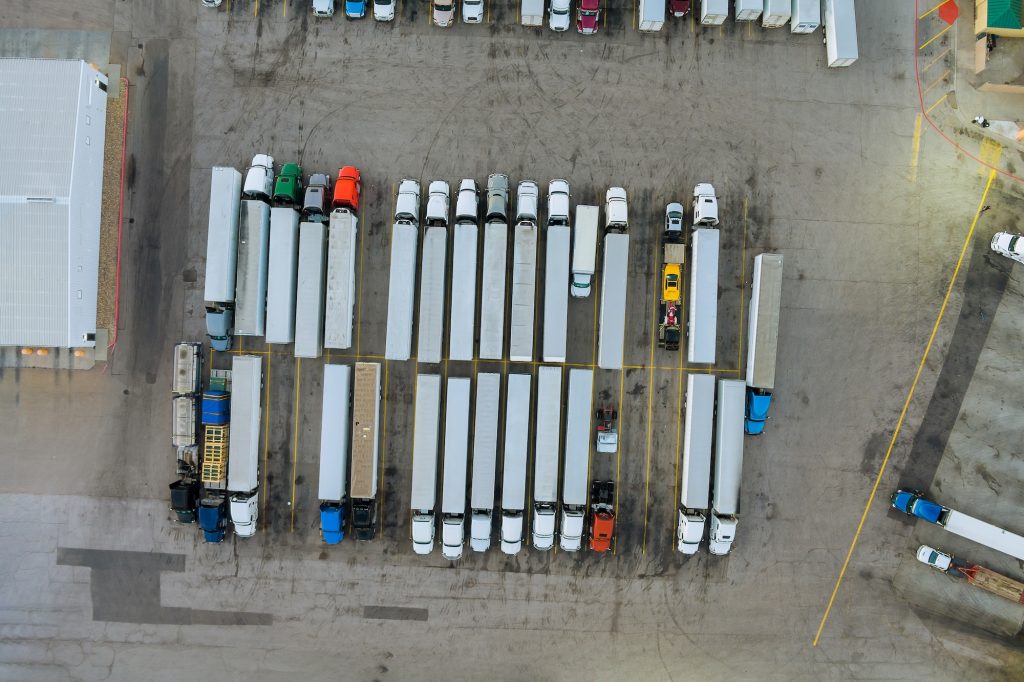
Hours of Service (HOS) Restrictions
Hours of Service (HOS) restrictions are designed to ensure driver safety by limiting the number of hours a driver can operate a vehicle without taking mandatory breaks.
These regulations play a crucial role in preventing driver fatigue, which is a major contributing factor to road accidents. By mandating rest periods and capping driving hours, HOS restrictions help drivers stay alert and focused on the road, reducing the risk of accidents caused by drowsiness.
Plus enhancing safety, HOS regulations also promote compliance with labor laws and industry standards. By monitoring and enforcing these restrictions, authorities can ensure that drivers and companies adhere to legal limits, fostering a culture of responsibility and accountability within the trucking industry.
Weight and Size Limits
Weight and size limits are crucial regulations for over-the-road hauling, ensuring that freight vehicles adhere to specified dimensions and weight capacities to maintain road safety and infrastructure integrity.
These limits play a vital role in preventing accidents caused by overloaded trucks or vehicles exceeding permissible dimensions. By enforcing these regulations, authorities aim to protect both drivers and other road users from potential hazards posed by unregulated heavy and oversized loads.
In addition, weight and size restrictions also help in preserving the condition of roadways and bridges, ensuring that the existing infrastructure can support the passage of commercial vehicles without incurring excessive wear and tear. Striking a balance between efficient transport logistics and road safety is essential to sustain a robust transportation network that facilitates the movement of goods across various distances and destinations.
Hazardous Materials (Hazmat) Regulations
Hazardous materials (Hazmat) regulations are critical for over-the-road hauling, ensuring the safe and compliant transportation of potentially dangerous goods.
Without these regulations, the risks associated with transporting hazardous materials would be significantly higher. Hazmat regulations outline specific safety protocols that must be followed to mitigate the potential dangers involved in handling and transporting these substances. Compliance with these regulations not only safeguards the environment and public health but also protects the individuals involved in the transportation process.
From proper labeling and packaging to specialized handling procedures, Hazmat regulations cover various aspects of transporting these materials safely. These regulations also require proper training for employees involved in the transportation process to ensure they are equipped to handle any unforeseen situations effectively. Maintaining compliance with Hazmat regulations is not just a legal requirement but a crucial aspect of responsible and safe transportation practices in the over-the-road hauling industry.

FAQ
FAQ for Over-the-Road Hauling in NJ & NY?
Frequently asked questions (FAQ) regarding over-the-road hauling in New Jersey (NJ) and New York (NY) cover topics such as licensing requirements, route planning, and compliance with state regulations.
One common query relates to understanding the specific licensing requirements for over-the-road hauling in NJ and NY. Drivers often wonder about the process for obtaining the necessary permits and endorsements to operate legally within these states.
Individuals often seek guidance on efficient route planning, including the best practices for optimizing routes to ensure timely deliveries while adhering to traffic regulations and safety standards. Another frequently asked question involves compliance with state regulations, particularly in terms of weight restrictions, hours of service regulations, and equipment specifications.
